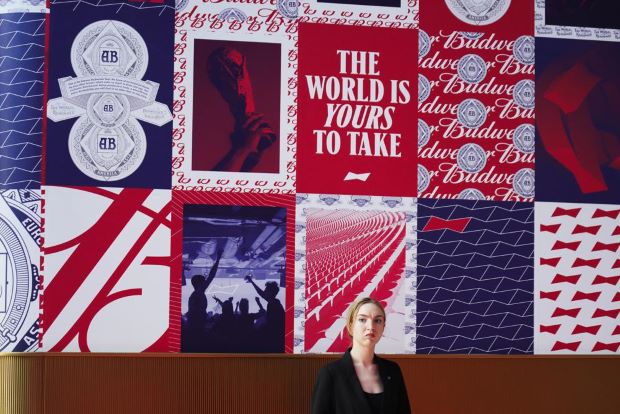Qatar bans beer sales at world cup stadiums
By Tariq Panja
DOHA — Beer is out at World Cup stadiums.
In an abrupt about-face, Qatari officials have decided that the only drinks that will be on sale to fans at games during the month-long World Cup will be non-alcoholic.
The decision, which came two days before the tournament’s opening match Sunday (20), was confirmed Friday (18) by FIFA, the tournament’s owner.
“Following discussions between host country authorities and FIFA, a decision has been made to focus the sale of alcoholic beverages on the FIFA Fan Festival, other fan destinations and licensed venues,” FIFA announced. The decision, it said, would mean “removing sales points of beer from Qatar’s FIFA World Cup 2022 stadium perimeters.”
The ban on beer is the latest and most dramatic change to an evolving alcohol plan that has for months increased tensions between FIFA, soccer’s global governing body, and Qatar, a conservative Muslim nation where the sale of alcohol is tightly controlled. But it also will complicate FIFA’s $75 million sponsorship agreement with Budweiser; infuriate fans already chafing at restrictions, costs and inconveniences around the event; and once again leave organizers scrambling to adjust in the final hours before the tournament begins.
But it also suggested that FIFA, which has faced years of blistering criticism for its decision to bring its showpiece championship to Qatar, may no longer be in full control of major decisions related to its event. A decade ago, for example, the soccer body pressured Brazil for just the opposite outcome: leaning on the Brazilian government to change a law in order to allow beer to be sold in stadiums, a practice that had been banned in Brazil since 2003.
In Qatar, FIFA has instead bowed to the demands of the host country. That raised the possibility that other promises that run counter to local laws and customs — including issues such as press freedom, street protests and the rights of LGBTQ+ visitors — were not as rock-solid as Qatar and FIFA have said.
The Football Supporters’ Association, a fan advocacy group based in Britain, criticized the decision.
“Some fans like a beer at a game and some don’t, but the real issue is the last minute U-turn which speaks to a wider problem — the total lack of communication and clarity from the organizing committee toward supporters,” the group said in a statement.
“If they can change their minds on this at a moment’s notice, with no explanation, supporters will have understandable concerns about whether they will fulfill other promises relating to accommodation, transport or cultural issues.”
The ban on alcohol consumption seemed to apply only to fans attending games. Beer and other drinks, including an official FIFA Champagne and an array of sommelier-selected wines, will still be available in stadium luxury suites reserved for FIFA officials and other wealthy guests.
The decision to ban beer comes a week after an earlier edict that dozens of red beer tents bearing Budweiser’s branding be moved to more discreet locations at the World Cup’s eight stadiums, away from where most of the crowds attending games would pass.
World Cup staff members were told the move followed security advice. But the belief that the change had originated with Sheikh Jassim bin Hamad bin Khalifa al-Thani — the brother of Qatar’s ruling emir and the royal most active in the day-to-day planning of the tournament — suggested it was non-negotiable.
One official involved in the process said FIFA officials agreed because they were concerned that if they did not they risked seeing Budweiser’s concessions being shut down entirely.
Qatar has grappled with the subject of alcohol ever since the tiny Gulf nation was awarded World Cup hosting rights in 2010. Alcohol is available in the country, but sales are strictly controlled. Most visitors, even before the World Cup, were permitted to buy beer and other alcoholic beverages only in upscale hotel bars and at unusually high prices.
World Cup organizers appeared eager to mollify Budweiser and its corporate parent, the Belgium-based multinational Anheuser-Busch InBev, saying, “tournament organizers appreciate AB InBev’s understanding and continuous support to our joint commitment to cater for everyone.”
Representatives for Budweiser, who had suggested last week that they were blindsided by Qatar’s earlier changes to their sales strategy for the World Cup, did not immediately reply to requests for comment.
The company’s only public statement was a wry one from its Twitter account, which wrote, “Well, this is awkward….” The tweet was deleted about 90 minutes later and just before FIFA’s statement was released.
Last week, Qatari organizers tried to play down the rising tension over beer sales, a fixture of World Cups for generations, by saying that operational plans were still being finalized, and that changes were still being made in “the location of certain fan areas.” Its statement also noted that “pouring times and the number of pouring destinations” remained the same at all eight stadiums.
Budweiser, which pays FIFA the $75 million for each four-year World Cup cycle, had said it was working with organizers “to relocate the concession outlets to locations as directed.”
The newest plan means that the brewer’s red tents now may not be visible at all around stadiums; unbranded white replacements are being considered. Refrigerators in the company’s famous red colours are likely to be replaced by blue ones, the colour associated with Budweiser’s non-alcoholic brand, Budweiser Zero.
-New York Times
Ads for Budweiser are seen at a hotel hosting a major bar for the beermaker in Doha, Qatar, Friday (Nov 18). World Cup organizers on Friday banned the sale of all beer with alcohol at the eight stadiums used for the soccer tournament -Jon Gambrell/AFP



Comments are closed, but trackbacks and pingbacks are open.